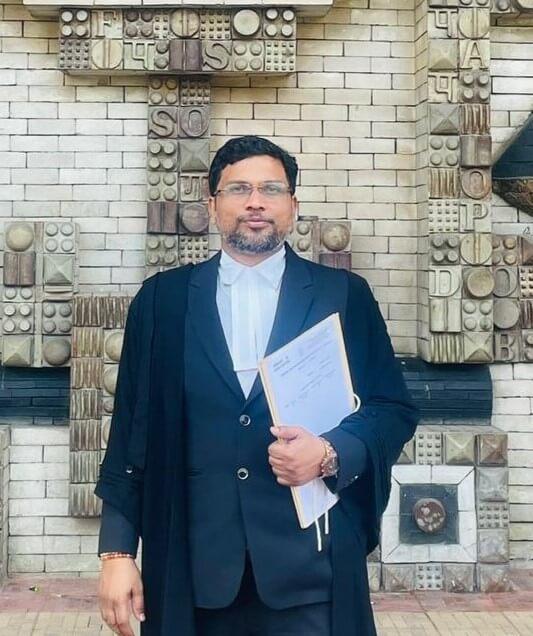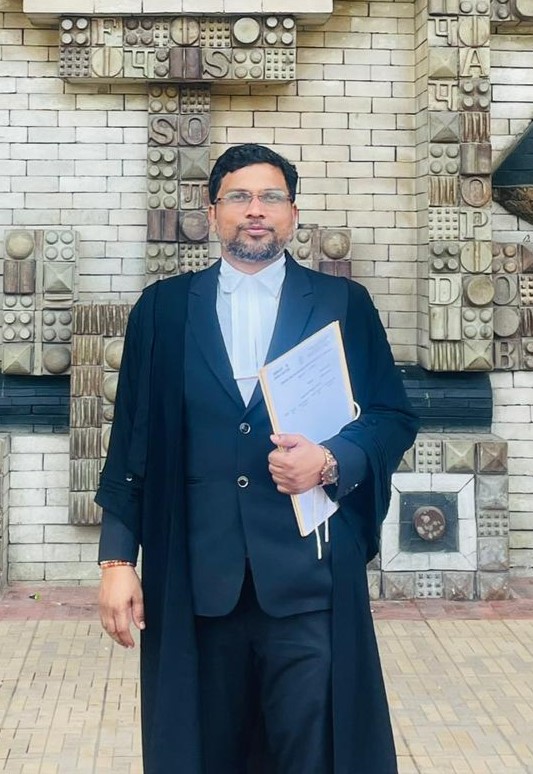Punjab & Haryana High Court Judgement Court fees – Suit for prohibitory and mandatory injunction Court Fees Act – S.7(iv)(d) – The determination of court fees in suits concerning prohibitory and mandatory injunctions hinges on the relief sought, not the property’s market value. Specifically, in matters involving immovable property, the valuation should align with the relief sought in the suit. The evaluation should focus primarily on the nature and extent of the relief or reliefs claimed in the case. It’s essential to consider the specific injunction sought and its implications rather than solely relying on the market value of the property. The determination of court fees necessitates a direct correlation with the nature and scope of the injunction sought in the suit. Valuation in such cases should primarily consider the relief’s significance and the specific nature of the injunction sought. Therefore, the determination of court fees must align with the relief claimed and not solely the property’s market value.
TOP Cyber Crime Lawyer in Delhi
Cyber crime refers to criminal activities carried out using computers, networks, and the internet. Here’s an overview of cyber crime: Types of Cyber Crime: Prevention Strategies: Laws and Regulations: By understanding cyber crime and implementing prevention strategies, individuals and organizations can protect themselves from these threats.
Criminal Cases Lawyer in Delhi
Supreme Court Judgement Conviction for attempted murder can be upheld even if the injuries inflicted on the victim were minor/simple in nature. An attempt to commit murder under S.307 of the IPC can be established irrespective of minor injuries. The key focus lies in proving the accused’s intent and overt actions to commit the crime. The severity of the injuries sustained is not the defining factor under this statute. It emphasizes proving the accused’s intention and actions aligned with attempting murder. S.307 centers on demonstrating the accused’s intent and tangible steps taken toward committing the crime, regardless of the extent of injury.
Best Bail Lawyer in Delhi
Anticipatory bail is a type of bail granted to an individual who anticipates arrest and seeks court intervention to secure release on bail. Here’s an overview of anticipatory bail: Key Aspects of Anticipatory Bail: Anticipatory Bail Process: Grounds for Granting Anticipatory Bail: Differences between Anticipatory Bail and Regular Bail: By understanding anticipatory bail, individuals can seek legal protection and avoid unnecessary detention.
Cheque Bounce Cases Lawyer in Delhi
Cheque Bounce Cases Lawyer in Delhi. Cheque Bounce Cases: A Comprehensive Guide A cheque bounce, also known as a dishonored cheque, occurs when a bank refuses to honor a cheque due to insufficient funds in the account or other reasons. In India, cheque bounce cases are governed by the Negotiable Instruments Act, 1881. Consequences of Cheque Bounce: Procedure for Filing a Cheque Bounce Case: Tips for Avoiding Cheque Bounce Cases: Conclusion: Cheque bounce cases can have serious consequences. Understanding the procedures and taking preventive measures can help avoid such situations.
Divorce Lawyer in Delhi.
Best Divorce Lawyer in Delhi. Divorce cases involve the legal dissolution of a marriage, often involving complex emotional, financial, and logistical issues. Here’s an overview of divorce cases: Types of Divorce Cases: Divorce Case Process: Issues in Divorce Cases: Divorce Case Outcomes: By understanding divorce cases, individuals can better navigate the complex and emotional process of divorce.
Advocate in Delhi
Supreme Court Judgment. Accused were not traceable. Such conduct by itself is not reflective of a guilty mind. The absence of the accused when the police discovered the body and initiated proceedings after filing the FIR might stem from the instinct for self-preservation rather than guilt, even if the accused were innocent. This instinct could prompt the accused to avoid arrest until advised better and eventually surrender. Such behaviour doesn’t necessarily indicate a guilty conscience. If the accused were truly innocent, this act of self-preservation could simply be a reflex action rather than a sign of culpability. The natural inclination to avoid immediate arrest might be influenced by prudence until the accused gets sound advice to surrender. Therefore, this conduct alone may not serve as evidence of a guilty mindset.
Lawyer in Delhi.
#lawyerindelhi #advocateindelhi #lawfirmindelhi
Divorce Grounds in India under HMA
Grounds for Divorce under Hindu Marriage Act The following are the grounds for divorce in India mentioned under the Hindu Marriage Act, 1955. Adultery – The act of indulging in any kind of sexual relationship including intercourse outside marriage is termed as adultery. Adultery is counted as a criminal offence and substantial proofs are required to establish it. An amendment to the law in 1976 states that one single act of adultery is enough for the petitioner to get a divorce. Cruelty – A spouse can file a divorce case when he/she is subjected to any kind of mental and physical injury that causes danger to life, limb and health. The intangible acts of cruelty through mental torture are not judged upon one single act but series of incidents. Certain instances like the food being denied, continuous ill treatment and abuses to acquire dowry, perverse sexual act and such are included under cruelty. Desertion – If one of the spouses voluntarily abandons his/her partner for at least a period of two years, the abandoned spouse can file a divorce case on the ground of desertion. Conversion – Incase either of the two converts himself/herself into another religion, the other spouse may file a divorce case based on this ground. Mental Disorder – Mental disorder can become a ground for filing a divorce if the spouse of the petitioner suffers from incurable mental disorder and insanity and therefore cannot be expected from the couple to stay together. Leprosy – In case of a ‘virulent and incurable’ form of leprosy, a petition can be filed by the other spouse based on this ground. Venereal Disease – If one of the spouses is suffering from a serious disease that is easily communicable, a divorce can be filed by the other spouse. The sexually transmitted diseases like AIDS are accounted to be venereal diseases. Renunciation – A spouse is entitled to file for a divorce if the other renounces all worldly affairs by embracing a religious order. Not Heard Alive – If a person is not seen or heard alive by those who are expected to be ‘naturally heard’ of the person for a continuous period of seven years, the person is presumed to be dead. The other spouse should need to file a divorce if he/she is interested in remarriage. No Resumption of Co-habitation – It becomes a ground for divorce if the couple fails to resume their co-habitation after the court has passed a decree of separation. The following are the grounds for divorce in India on which a petition can be filed only by the wife. divorce grounds in India,grounds for divorce under Hindu marriage act,cruelty ground divorce in India,adultery in divorce 13(1) Hindu marriage act. #marriagelawyerindelhi #domesticviolencelawyerindelhi #divorcelawyerindelhi #advocateindelhi #lawyerindelhi
Bail in NDPS Cases in India: Understanding the Legal Landscape
Bail in NDPS Cases in India: Understanding the Legal Landscape Under the NDPS Act getting bail is not an easy thing, whereas, under ordinary criminal cases, bail is the rule and jail is the exception. However, under the NDPS Act, it is reversed. Section 37 of the Act imposes strict requirements for the grant of bail to the accused person. The Narcotic Drugs and Psychotropic Substances (NDPS) Act is one of the most robust laws in India aimed at combating drug-related offenses with the help of the Best NDPS Lawyer in Mumbai. The Act has strict provisions and penalties to deter drug trafficking and abuse. One critical aspect of the NDPS Act is the grant of bail to accused individuals during legal proceedings. In this blog, we will delve into the concept of bail in NDPS cases in India, the criteria considered for granting bail, and some landmark judgments that have shaped the approach towards bail under this Act. Understanding Bail under the NDPS Act: The NDPS Act classifies the offences committed under it as cognizable offences, meaning the accused can be arrested without a warrant. Bail refers to the release of an accused person from custody during the pendency of a trial. In NDPS cases, obtaining bail can be a complex process due to the gravity of drug-related offenses. However, it is essential to recognize that the right to personal liberty is a fundamental right protected by the Constitution of India. Therefore, bail should not be denied arbitrarily; one can file an application with the help of the best Lawyer for NDPS Drug cases and it must be granted based on the circumstances and merits of each case. The relevant provision of the NDPS Act As a result, these offences are deemed to be serious and of grave nature. Here are some of the relevant provisions of the Act: Section 37 stipulates that persons accused of offences u/s 19 (embezzlement of opium by cultivator) Section 24 (external dealings of narcotics drugs and psychotropic substances) Section 27A (financing of illicit drug traffic and harboring offenders) along with offences that involve commercial quantities shall be released on bail, only on two conditions: 1.Where the public prosecutor has got the opportunity to oppose the application for release and 2.The court is satisfied that there are reasonable grounds to believe that the accused is not guilty of the aforementioned offences and that he is not likely to commit such offences while on bail. Criteria Considered for Granting Bail: The courts consider several factors before deciding whether to grant bail in NDPS cases. Some of the key criteria include: 1.Nature and Quantity of Drugs: The courts assess the seriousness of the offense and the quantity of drugs involved. In cases involving small quantities of drugs for personal consumption, bail may be more likely to be granted. You can find out the Top lawyer for NDPS cases in India. 2.Role of the Accused: The court examines the role of the accused in the alleged offense. If there is no substantial evidence linking the accused to drug trafficking or manufacturing, bail may be considered. 3.Antecedents and Criminal History: The past criminal record of the accused is also taken into account. A history of previous drug-related offenses or criminal activities may adversely impact the bail decision. One of the Best NDPS Lawyer in Mumbaican help you get the justice. 4.Possibility of Tampering with Evidence or Influencing Witnesses: The court evaluates whether releasing the accused on bail might hinder the investigation or pose a risk of tampering with evidence or influencing witnesses. One of the Top NDPS Lawyer in Mumbai can be good choice Relationship between NDPS Act and Sec. 437 of CrPC 1.Narcotic Control Bureau v. Kishan Lal, AIR 558 1991 SCR (1) – It was held by the Court that if there is an inconsistency with Section 37 of NDPS Act and Sec. 437 of Cr. P. C. then the provisions of NDPS Act will prevail. 2.Union of India v. Niyazuddin & Anr. (2018) 13 SCC 738 – The Apex Court in the case stated that the court must first satisfy twin conditions stipulated u/s 37 of the NDPS Act along with the parameters provided under the CrPC and other legislations. It further clarified that the overlap between the provisions of the NDPS Act and the CrPC (i.e. Section 37 and Section 437) then the former must prevail. 3.Union of India v. Thamisharasi & Ors., JT 1995 (4) SC 253 – The Apex Court in the case stated, “The limitation on the power to release on bail in Section 437 Cr. P.C. is like a restriction on that power, if reasonable grounds exist for the belief that the accused is guilty. On the other hand, the limitation on this power in Section 37 of the N.D.P.S. An act is like a condition precedent for the exercise of that power, so that, the accused shall not be released on bail unless the Court is satisfied that there are reasonable grounds to believe that he is not guilty. Under Section 437 Cr. P.C., it is for the prosecution to show the existence of reasonable grounds to support the belief in the guilt of the accused to attract the restriction on the power to grant bail; but under Section 37 N.D.P.S. Act, it is the accused who must show the existence of grounds for the belief that he is not guilty, to satisfy the condition precedent and lift the embargo on the power to grant bail.” Reasonable grounds as per Provision of NDPS Act 1.State of Kerala v. Rajesh (2020): In Criminal Appeal No(s). 154157 of 2020, it was held by the Apex Court that the concept “Reasonable Grounds” contemplates substantial probable cause reasons to believe that the accused will not be guilty of any offence under the Act. In this case, it was clarified that the Facts of the case should be clear for removing any difficulty concerning the accused committed the offence. 2.Municipal Corporation of Greater Mumbai v. Kamla Mills Ltd. (2003) 6 SCC 315: The Court held that the expression ‘reasonable ground’ means “by reason”. It shall be





